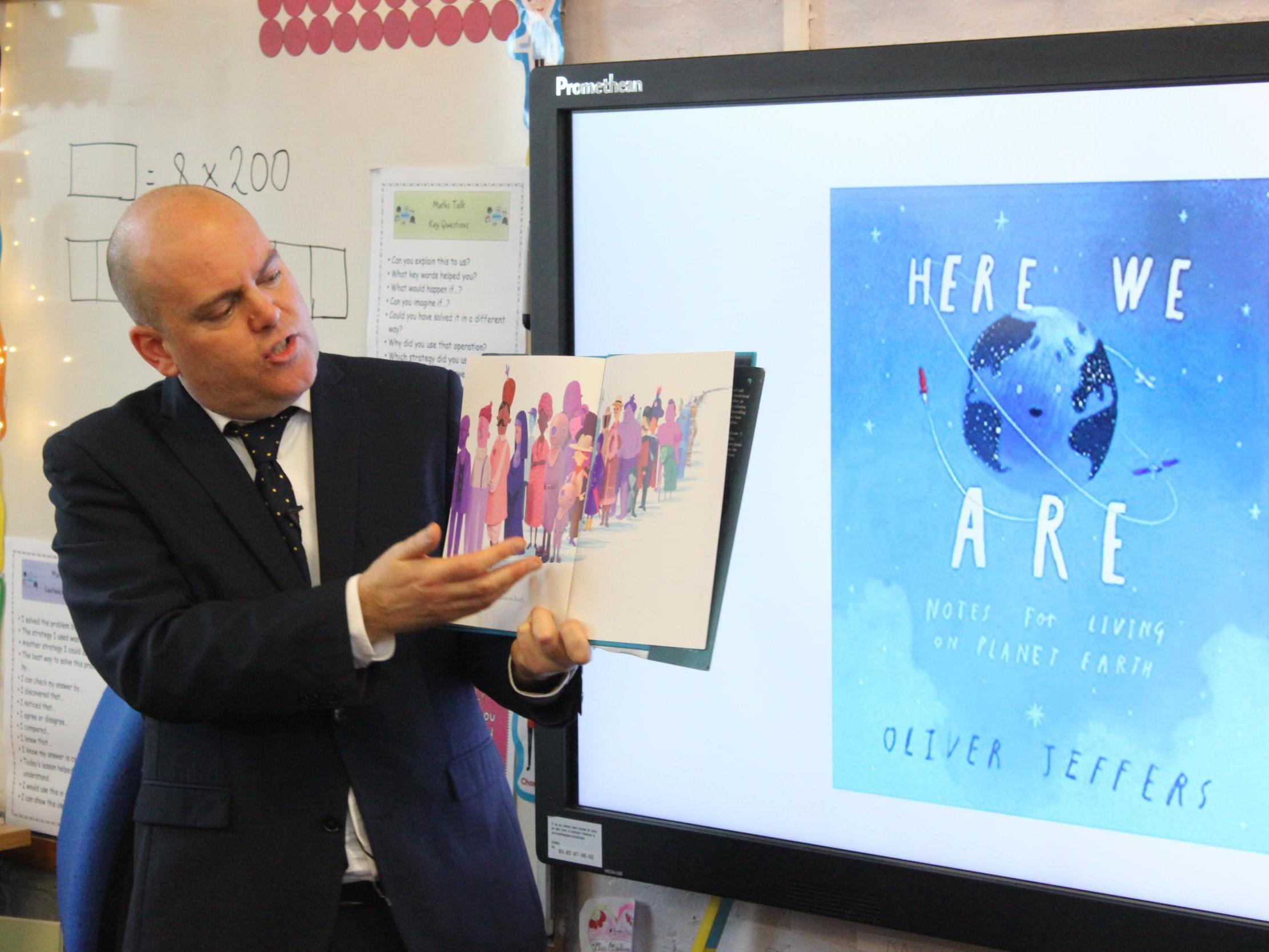What are primary school children being taught about LGBT+ relationships?
Everything you need to know about LGBT+ lessons as part of relationships education

Your support helps us to tell the story
From reproductive rights to climate change to Big Tech, The Independent is on the ground when the story is developing. Whether it's investigating the financials of Elon Musk's pro-Trump PAC or producing our latest documentary, 'The A Word', which shines a light on the American women fighting for reproductive rights, we know how important it is to parse out the facts from the messaging.
At such a critical moment in US history, we need reporters on the ground. Your donation allows us to keep sending journalists to speak to both sides of the story.
The Independent is trusted by Americans across the entire political spectrum. And unlike many other quality news outlets, we choose not to lock Americans out of our reporting and analysis with paywalls. We believe quality journalism should be available to everyone, paid for by those who can afford it.
Your support makes all the difference.A row over how much primary school children should be taught about LGBT+ issues is raging on, with four more primary schools in Birmingham suspending the lessons following complaints from parents.
Amanda Spielman, Ofsted’s chief inspector, has said all schools should teach pupils about same-sex couples as children should know there are families with “two mummies or two daddies”.
But a group of parents argue that these children are too young to learn about LGBT+ relationships.
What are pupils being taught in primary school?
Currently individual primary schools can decide whether they teach about same-sex couples.
A number of schools across the country have adopted “No Outsiders”, a programme which uses picture books to teach children about different types of families – including LGBT+ relationships.
The course teaches primary school pupils about the Equality Act 2010, which protects from discrimination on the grounds of race, religion, gender, age, disabilities and sexual orientation.
Ofsted has deemed the diversity lessons at Parkfield Community School in Birmingham, where the assistant head piloted the programme four years ago, as “age-appropriate”.
What is changing?
The current government guidance on sex and relationship education (SRE) in England lacks any detail on how schools should ensure SRE classes are relevant to them, whatever their sexuality.
The guidance, which was issued in 2000, does not say how schools should tackle this or at what age.
But from September 2020, all schools will be required to teach relationships education in primary schools. Under plans for compulsory lessons, pupils will be taught about LGBT+ families.
The final guidelines from the government says primary schools should ensure LGBT+ content is “fully integrated” into their programmes of study rather than delivered as a standalone lesson.
But it adds that teaching should still be “sensitive and age-appropriate”.
Education secretary Damian Hinds has said children as young as four would not learn about same-sex couples – but primary school pupils will be taught about having respect for all kinds of people.
Will parents be able to withdraw their children?
Parents only have the right to withdraw their children from sex education lessons provided the child is under 15. Children 15 and over will be able to defy parents and opt in for these classes.
But parents do not have the right to withdraw children from lessons on relationships – which are becoming compulsory in all primary schools next year.
Thousands of people believe parents should be allowed to take their children out of lessons on same-sex relationships at primary school.
Join our commenting forum
Join thought-provoking conversations, follow other Independent readers and see their replies
Comments